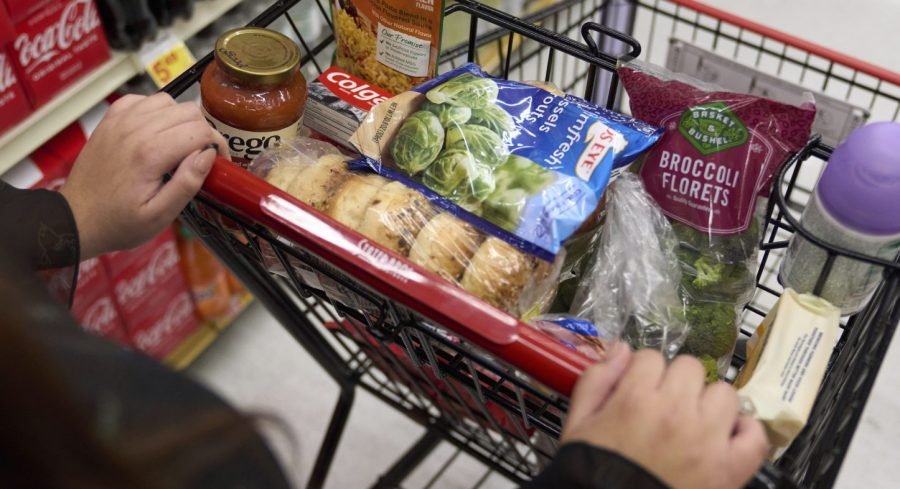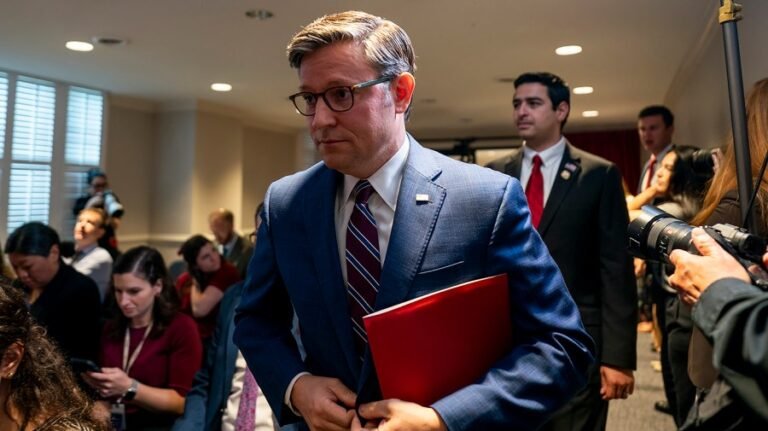
This is a large country, and people in different states embrace different customs, cultural preferences and political beliefs. But for all our diversity, every person in every state needs to eat.
In recognition of this, America has long treated hunger as a national concern. Unfortunately, a little-understood provision in the budget reconciliation legislation speeding through Congress would change that. Within a few years of its passage, we would likely see a significant number of states with no family food assistance program at all for Americans unable to buy enough food.
In the middle of the 20th century, the U.S. Department of Agriculture purchased surplus commodities from farms and distributed them to people in need, wherever they were. When this became unworkable, Congress began converting commodity distributions into food stamps that low-income households could spend in regular supermarkets to buy food for their families. President Richard Nixon saw the benefits of this program and pushed through legislation that made the Food Stamp Program nationwide.
In the following decades, the Food Stamp Program was expanded to help more of the working poor and reduced when Congress was trying to cut the deficit. Some of its biggest supporters were Republicans like Sen. Bob Dole (R-Kan.), Sen. Richard Lugar (R-Ind.) and Sen. Pat Roberts (R-Kan.) as well as Rep. Bill Emerson (R-Mo.). As technology advanced, electronic debit cards replaced the old paper food stamps and the program changed its name to the Supplemental Nutrition Assistance Program, or SNAP.
But even when Congress has felt the need to cut back on food stamps, it has never departed from the principle that hunger is a national concern. Budget cuts that took effect in New York also took effect in Arkansas. The pending reconciliation bill, however, would change that, making it likely that some of the states that most need food assistance would drop out completely.
Both the House-passed bill and the one pending in the Senate would, for the first time, require states to contribute to the cost of food assistance benefits. The percentages in the two versions vary, but the hit would be large. If the final legislation requires states to pay 10 percent, the 10-year cost to states would be almost $90 billion.
Poorer states would be especially hard-hit: Alabama would have to pay $1.64 billion, Arkansas would need to come up with $521 million and West Virginia would have to find $536 million in its budget.
Because the provision prohibits the federal government from paying its share unless the state pays the required amount, states that are unwilling or unable to produce the required match would have to drop out of SNAP altogether.
This is a real possibility. The Federal Reserve and many private forecasters are seeing signs that economic growth is slowing, with a full recession a distinct possibility. Even if we avoid a recession, a slowing economy will reduce states’ revenues and drive up the number of people losing their jobs and needing food assistance. At a time when states will be cutting important programs and contemplating unwelcome tax increases just to keep their heads above water, few will have room to absorb tens or hundreds of millions of dollars of new costs to maintain existing food assistance programs.
Once food assistance ceases to be available in some states for families regardless of need, we will have lost something important about what makes us a country.
The consequences will be severe indeed. Copious research shows that children growing up with inadequate diets do worse in school and have lower lifetime earnings. As some states terminate federal food assistance, voices in neighboring states will advocate for dropping the program as well. Members of Congress from states lacking federal family food assistance will have little reason to support funding for a program operating only in other states.
The effects will extend well beyond food assistance. SNAP, along with unemployment insurance, is one of our most important “automatic stabilizers” that puts more money into the economy as the nation tips into a recession. This is crucial because Congress often takes months to enact stimulus legislation — or fails altogether. A shrunken SNAP will mean less effective stimulus to pull the country out of a downturn, and a SNAP that operates only in some states could contribute to an uneven recovery across the country. Indeed, because all states must balance their budgets even in recessions, declining revenues may force some states to drop out of SNAP at the very moment when families most need help and when the economy most needs a boost.
No good reason exists for shifting the costs of SNAP benefits to states. States already spend large amounts to meet human needs ignored by the federal government and even more matching federal contributions for efforts such as Medicaid and child care subsidies. States’ revenue streams are less efficient and far more vulnerable to regional and national economic downturns. Suddenly increasing states’ costs in federal-state programs is precisely the kind of “unfunded mandate” that prompted congressional Republicans to enact the Unfunded Mandates Reform Act in 1995 and that led Republicans to criticize the Affordable Care Act’s Medicaid expansion.
Dumping federal fiscal shortfalls on the states is antithetical to the values of federalism. It is a shameful practice contemplated by policymakers lacking the courage to get the federal government’s own fiscal house in order.
Congress should drop this cost-shifting provision altogether. At a very minimum, it should ensure that the federal share of food assistance benefits remain available even in states that are unwilling or unable to put up hundreds of millions of dollars of their own.
David A. Super teaches at Georgetown Law.

